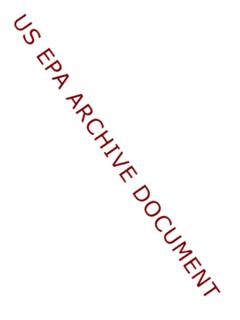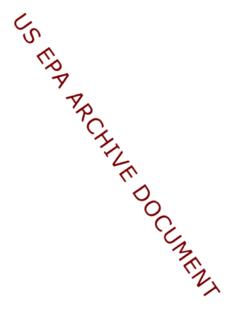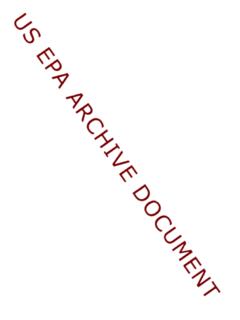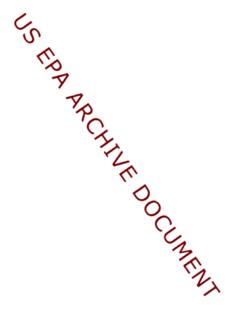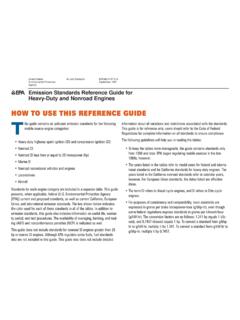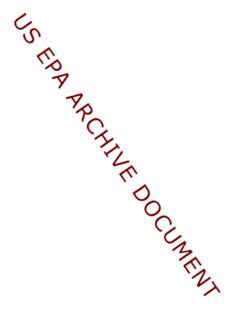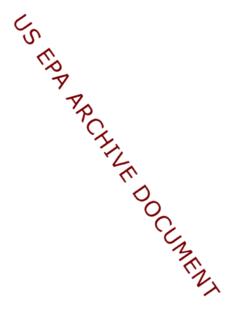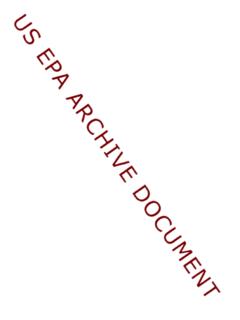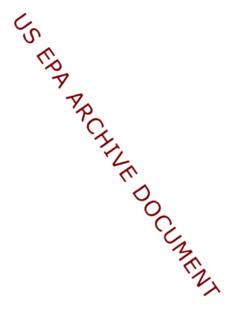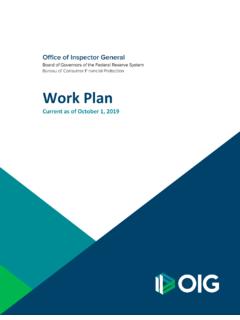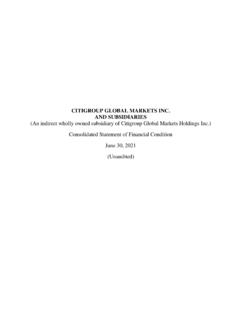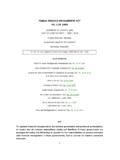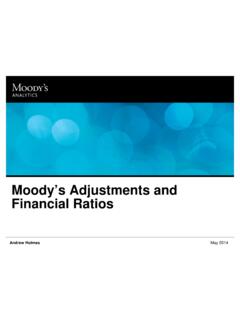Transcription of Full Cost Accounting for Municipal Solid Waste …
1 CostOverheadDepreciationAmortizationFull Cost Accounting forMunicipal Solid Waste management :A HandbookUnited States Environmental Protection AgencyEPA 530-R-95-041 September 1997 Wasteand Emergency Response5305 WContentsAbout This Handbook ..2 Introduction ..3 Chapter 1 Introducing Full Cost Accounting ..5 Chapter 2 The Scope of FCA for MSW ..11 Chapter 3 Compiling FCA Data ..19 Chapter 4 Allocating Costs ..28 Chapter 5 reporting FCA Data ..41 Appendix A An Illustration of Using FCA for MSW management ..59 Full Cost Accounting Glossary ..65 References ..69 EPA developed this Handbookto help you implement full cost Accounting (FCA) in your community. The Handbookwill help you better understandthe costs of the Municipal Solid Waste (MSW) services you provide, answerkey questions you might have about FCA, and guide you through the implemen-tation process.
2 You ll learn how to assemble necessary data, calculate full costinformation from the available data, and report the results of your FCA analysisto government officials and residents. Case studies, presented in boxes throughoutthe Handbook, provide snapshots of how other communities across the countryhave implemented FCA and are reaping its rewards. Key terms and concepts areitalicized on first reference, and their definitions are included in the Handbookcan answer only some questions about FCA. Because of thediversity of Accounting practices and rules and differences in the size and natureof local government MSW programs, there is no single recipe for success. Rather,the goals of this Handbookare to introduce key FCA terms and concepts and toprepare readers for the types of issues that will likely arise in conducting Handbookdoes not try to present step-by-step how-to directions on initiat-ing an FCA system.
3 It also does not provide detailed instructions for handling allissues that are likely to arise or recommend particular forms to use in compilingand reporting FCA for MSW. While economic concepts, such as fixed and vari-able costs, are illustrated in Chapter 5, the Handbookdoes not attempt to demon-strate how to apply economics to integrated Solid Waste management Handbookfocuses on costs that are relatively easy to value in the market-place. Other important costs that decision-makers and planners might want toconsider include potential liability costs for property damage or personal injury,costs of remediating potential future releases, social costs, environmental externali-ties, and upstream and downstream life-cycle costs.
4 This Handbookdefines anddescribes these costs, but does not explain how to value them or incorporate theminto decision-making. Consideration of the full spectrum of costs can be called true cost Accounting , which is beyond the scope of this Handbookis a first step toward helping you understand the costs ofMSW management in your community. It builds on local government experiencewith FCA and reflects input EPA has solicited from a diverse national peer reviewgroup. EPA welcomes comments on the Handbook, as well as information abouthow using FCA has helped your community. Comments should be submitted tothe RCRA Hotline at 800 424-9346 or TDD 800 553-7672. In the Washington,DC, area, call 703 412-9810 or TDD 703 412-3323.
5 The Hotline is openMonday through Friday, 9:00 to 6:00 , Eastern Standard Time. 2 About This HandbookFull cost Accounting (FCA) is a systematic approach for identifying, summing,and reporting the actual costs of Solid Waste management . It takes intoaccount past and future outlays, overhead (oversight and support service) costs,and operating costs. Knowing the full costs of Municipal Solid Waste (MSW) manage-ment can help you make better decisions about your Solid Waste program, improvethe efficiency of services, and better plan for the future. FCA can help you compilethe detailed cost information you need to understand whatMSW management costs and to communicate these costs tothe of July 1997, four states (Florida, Georgia, Indiana,and North Carolina) require local governments to use FCA inreporting MSW costs to citizens.
6 In addition, the TexasNatural Resource Conservation Commission developed anFCA workbook to help municipalities determine rates thatreflect the full cost of providing Solid Waste services. Manylocalities in other states are also applying FCA concepts andare finding them important and useful tools to help managetheir Solid Waste can be a new way of thinking about MSW manage-ment for some communities. For others, it can be simply anextension of current management practices. Understandingthe benefits of FCA can help ease its implementation in yourcommunity. FCA can help you: Identify What MSW management Costs. Whenmunicipalities handle MSW services through general tax funds, the costs ofMSW management can get lost among other expenditures.
7 Even if an effortis made to identify Solid Waste costs, it is easy to overlook some of them. Youcan have more control over MSW costs when you learn what those costs are. See Through the Peaks and Valleys in MSW Cash Expenditures. Usingtechniques such as depreciation and amortization, FCA produces a moreaccurate picture of the costs of MSW programs, without the distortions thatcan result from focusing solely on a given year s cash expenditures. Explain MSW Costs to Citizens More Clearly. FCA helps you collect andcompile the information needed to explain to citizens what Solid Waste man-agement actually costs. Although some people might think that MSW man-agement is free (because they are not billed specifically for MSW services),others might overestimate its cost.
8 FCA can result in bottom line numbersthat speak directly to residents. In addition, you can use FCA results torespond to specific public concerns. Adopt a Businesslike Approach to MSW management . By focusing atten-tion on costs, FCA fosters a more businesslike approach to MSW manage-ment. Consumers of goods and services increasingly expect value, which3 IntroductionFCA supports your: Informational goalsby determiningand reporting how much MSW man-agement costs. management goalsby identifyingpotential cost savings and providing asound basis for management decisionssuch as privatizing services. Planning goalsby documenting cur-rent benchmarks that can be used whenmaking or evaluating Helps You Meet Your Goals4means an appropriate balance between quality and cost of service.
9 FCA canhelp identify opportunities for streamlining services, eliminating inefficien-cies, and facilitating cost-saving efforts through informed planning and deci-sion-making. Develop a Stronger Position in Negotiating with Vendors. When consid-ering privatization of MSW services, you can use FCA to learn what it costs(or would cost) to do the work. As a result, FCA better positions publicagencies for negotiations and decision-making. FCA also can help commu-nities with publicly run operations determine whether their costs are com-petitive with the private sector. Evaluate the Appropriate Mix of MSW Services. FCA gives you the abil-ity to evaluate the net cost of each element of your Solid Waste system: recy-cling, composting, Waste -to-energy, and landfilling.
10 FCA can help you avoidcommon mistakes in thinking about Solid Waste management , notably theerror of treating avoided costs as revenues. Fine-Tune MSW Programs. As more communities use FCA and report theresults, you might be able to benchmark your operation to similar cases ornorms. This comparison can suggest options for re-engineering your cur-rent operation. Further, when cities, counties, and towns knowwhat it costs to manage MSW independently, they can better iden-tify any savings that might come from working can complement two other practices: unit-based pricing(orpay-as-you-throw) programs and enterprise funds. Unit-based pricingprograms charge Solid Waste generators based on how much theythrow away.
